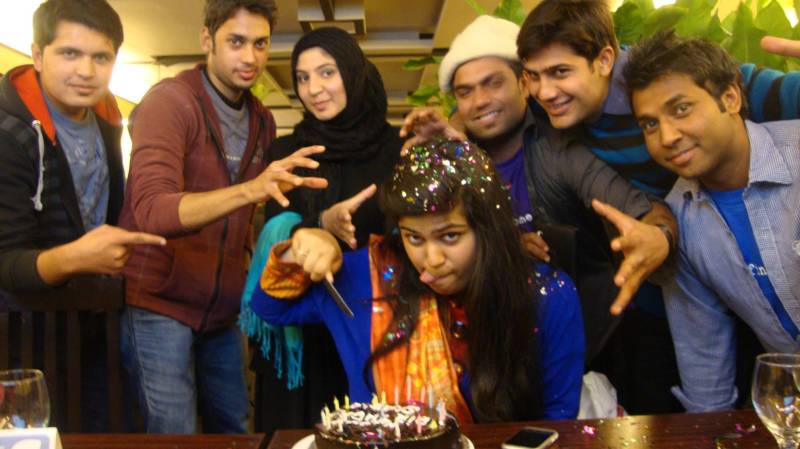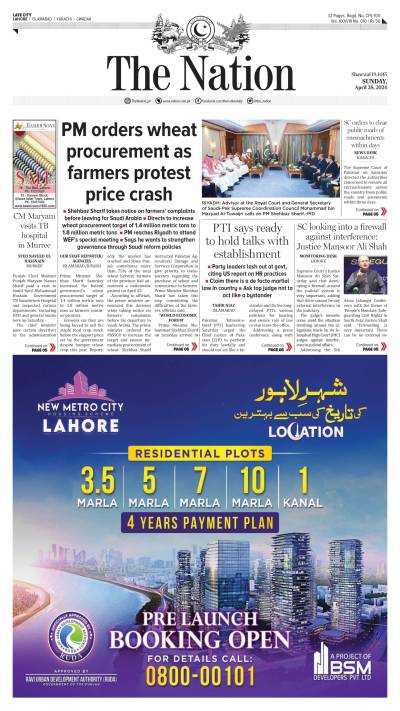In our country, the concept of friendship is simply defined as: good girls are those who only befriend girls. And shareef boys are those who befriend only boys. And of those girls, those who are the friends of your brothers are either bad girls or spoiled, neglected daughters of careless mothers. To many, the ultimate sin is the friendship between a boy and a girl.
This concept is believed everywhere in our country, from super conservative areas to the liberal cosmopolitan cities. Pakistan is the safest, most flexible and accommodative place for the nurturing of LGBT relationships, because if a girl becomes friends with a boy, half of the society will tag her characterless, and the other half will make an affair out of it.
As a matter of fact, no relationship is inherently safe or harmful, be it a relationship of siblings, friends or cousins. As long as you have not experienced much, you should live your life based on the stereotypes and predispositions of the society.
I remember my conversation with my father who was listening to my complaints against the world and its people and ended up saying, “Iffra has the patience to be your friend for long – you are never happy with your friends.” And I promptly replied: “That’s not right. I always had best friends in every city we have lived. It’s just that my best friends in Multan are Zain and Saad.” And they are boys. So for my father, they never fell in the category of friendship. They can be my class fellows, colleagues but friends? Nope! Not in his books. But this time his reaction was surprising.
He gave me a nod. I know he agreed. So he knows that in my books I have Iffra, Zain and Saad as my best friends. He knows Umair and Aaqib too. Hence Hi5 is alive after graduation too.
I won’t lie, it never was easy to move to Multan from Karachi and that, too, in the middle of my university. I remember Baba had always disagreed with the notion that a girl and a boy can be friends. They can be colleagues, class fellows or in a relationship, but they just can’t be friends. I was not sure if he was right or wrong.
In a private sector university, things were different. Couples and groups of friends, without gender discrimination, could be found. Things were cool: as long as you didn’t want a relationship, no one could force you (but your female friends who were already dating or committed might have tried to convince you). But you don’t judge people on this criteria. You don’t see any harm in young people dating and finding the right companions for each other. Everyone has his or her own right to set the rules for their life.
But after moving to Multan and shifting to the only decent university (Public Sector) of the city, things change drastically. You are identified as a girl. Nothing else but a girl. A good girl or a bad girl. A girl in an abbaya and a girl with no abbaya and head scarf.
The struggle to be friends with girls is not easy. From three different cities, backgrounds and interests, you can’t just stick together on the basis of your gender. I promise I still tried. And I paid for it, too. This was the very point when I realized that having the same gender does not always mean safety. A girl can create more trouble for a girl if she becomes insecure.
In today’s world, parents need to talk their children about this matter, especially those of girls who are sending their daughters into coeducation for the first time in their lives. They should understand that it’s not gender that determines the criteria of a good friendship, but care, security and respectable distance.
I know it all sounds clichéd, but this is the reality. I have cried and told my parents again and again that they have given me the worst punishment of my life by moving to this city. But I won't say that anymore.
This city taught me that friendship is not a contract neither a dictated notion. People with whom I don’t even remember my first meeting became my best friends. Over the period of four years of my undergrad studies, all the girls dispersed in the air of their wishes, desires and focuses. And I learnt the fact that gender can’t restrict friendship.
This society defines the bond of friendship as confined to the same gender in small towns, suburbs and cities, but I would like to inform them very bluntly that the chances are a girl will force a girl into wrong deeds 100 times more easily if she is not her friend, but is sticking around just because of the “same gender” rule of friendship. Seeing their female friends dating will encourage girls to date, girls doing drugs will force other girls to try it. That’s how peer pressure is built.
Instead of determining friendship on the basis of gender, I will always prefer to be friend with a human with character. My BFF is Iffra, she is a girl but we became friends over a period time because of common interests, talks and learning from each other – not just because she is a girl, but because she is the reflection of my own self.
Instead of marking gender in your daughters’ Standard Operational Procedure book of friendship, listen to her day to day experiences. Be friends with her and guide her through.
Over time I became friends with Zain, Saad, Umair and Aaqib. We called ourselves Hi5 in our university days. I knew I am not dating anyone of them nor will I ever because I never was looking for a relationship.
Although rules are military strict and curfew timings are tight, but as long as great friendship exists we should try to give society its piece of satisfaction, too. Society won’t look at things the way you want it to, and one should not stand out of society as an odd piece. If social betterment is needed, work for it as a member of it.
Thank you Multan for the beautiful experience of giving me friendship free of gender bias.
P.S: Dedicated to all understanding parents and decent friendships.






